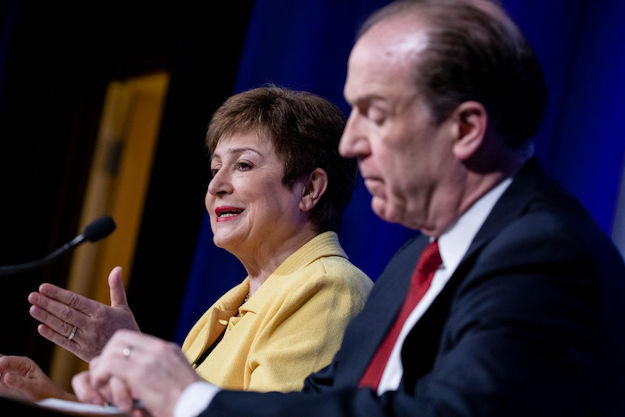
WASHINGTON, DC – MARCH 04: IMF Managing Director Kristalina Georgieva and World Bank Group President David Malpass. (Photo by Samuel Corum/Getty Images)
BY OLIVER STUENKEL | FEBRUARY 1, 2021
A renaissance in regional cooperation will have to start small – and skirt polarization.
SÃO PAULO – We all have witnessed how the pandemic aggravated the toxic mix of extreme inequality and poor public services in Latin America. While cash transfer programs and social distancing measures to combat the pandemic were enacted across the region, polarization and the risk of economic and political instability remain significant.
At first sight, this scenario provides a unique opening for multilateral institutions, such as the Organization of American States (OAS), the Inter-American Development Bank (IDB), the World Bank and the International Monetary Fund (IMF), to show their capacity to provide regional public goods and help countries mitigate the pandemic’s damage. Indeed, recognizing the importance of regional cooperation in tackling the pandemic’s aftermath, many countries in the region have already begun exploring potential means of seeking support from the IDB and the World Bank in their vaccination programs. Furthermore, after four years of Donald Trump’s America First policy,…
Read full article here








